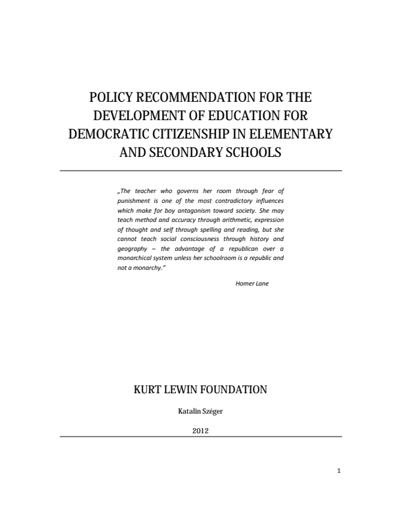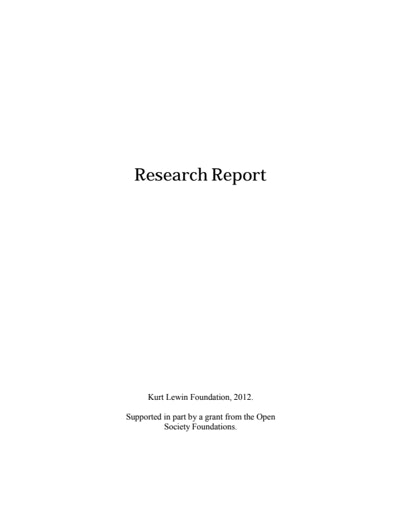The Kurt Lewin Foundation conducted a year of research and education in four secondary schools in Eastern Hungary to study the effect of the school as an organizational/operational environment on the active citizenship of students.
At the commencement of the project, the concept of citizenship grounded in activity, responsibility, and democratic values was emphasized in Hungarian educational policy, while the views and opinions of society in general and the younger generation in particular were changing in a direction not favorable for bolstering active citizenship.
For this reason the research and educational project comprised on the one hand an endeavor to enhance active citizenship by means of various developmental activities. On the other hand it included two panels of data collection, both by quantitative and qualitative methods, to assess the present situation pertaining to the topic of the study.
The Foundation conducted a survey concerning active citizenship in two grammar schools, and participant observation was used to explore the school citizens’ socio-demographic parameters, everyday habits, social relationships, and plans for the future, as well as their awareness, opinion, and information-gathering habits with respect to democracy, politics, and society, and their knowledge and opinion concerning their schools and, in particular, democracy in their schools.
Download
-
Youth and Active Citizenship (170.05 Kb pdf file)
Download the 14-page report.
Read more
publication
Policy Recommendation for the Development of Education for Democratic Citizenship in Elementary and Secondary Schools

This policy recommendation is the product of research aimed to explore what impact the school has on students’ active citizenship.
Racial Discrimination
A Community Rallies Against Racial Discrimination in Denmark

When Denmark’s housing policies used racial discrimination to upend their community, local residents looked to the law to fight back. Now their six-year legal challenge is before the European Union’s top court in Luxembourg.
Evidence for Accountability
Q&A: How Open Source Evidence Is Challenging Abuses, Atrocities, and Disinformation

Bellingcat has pioneered the use of open-source research to expose human rights abuses, atrocity crimes, and high-level corruption and other criminal activities involving governments, gangs, and other illicit actors.
